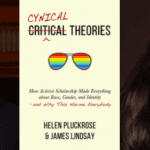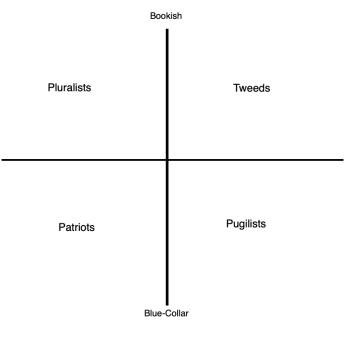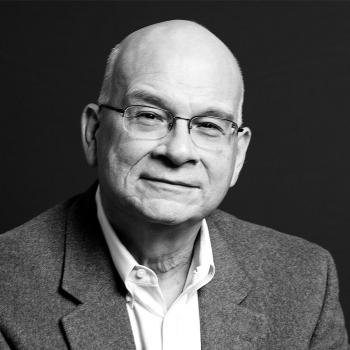 It’s been a number of months since I finished Eugene McCarraher’s behemoth book The Enchantments of Mammon, but I continue to find myself compelled by its tantalizing, subversive thesis. McCarraher argues, at great length, that modern finance capitalism is not, as it purports to be, merely a neutral scientific approach to reality; rather, it is its own ontology, one that sneaks in metaphysical commitments in its talk of value and quantification and commodities. What’s more, McCarraher submits, this picture of the world amounts to a comprehensive “religious” vision—a faith in the ideal of the self-made man, dominantly forcing a pliant natural order to conform to his will—that would have been wholly alien to earlier generations of Christians. In short, we do not inhabit a secular age, but an era committed to a distinctly modern spirituality.
It’s been a number of months since I finished Eugene McCarraher’s behemoth book The Enchantments of Mammon, but I continue to find myself compelled by its tantalizing, subversive thesis. McCarraher argues, at great length, that modern finance capitalism is not, as it purports to be, merely a neutral scientific approach to reality; rather, it is its own ontology, one that sneaks in metaphysical commitments in its talk of value and quantification and commodities. What’s more, McCarraher submits, this picture of the world amounts to a comprehensive “religious” vision—a faith in the ideal of the self-made man, dominantly forcing a pliant natural order to conform to his will—that would have been wholly alien to earlier generations of Christians. In short, we do not inhabit a secular age, but an era committed to a distinctly modern spirituality.
It’s hard to find a more sublime vindication of McCarraher’s argument than a recent article from the New York Times detailing the rise of “spiritual consultants.” According to the article, the decline of traditional religion, coupled with mass culture’s thirst for deeper meaning, has created a novel opportunity for enterprising young divinity-school graduates: designing and deploying “meaning-making practices” calculated to make employees spiritually satisfied in the workplace. These rituals might include moments of silence, group breathing exercises, and shared sensory experiences—such as everyone in a meeting inhaling a scent at the same time. Proponents of this approach, such as the team at Harvard’s “Sacred Design Lab,” describe organized religions (in good Foucauldian fashion) as technologies for delivering meaning—so why not simply turn those technologies to useful ends?
And thus, the religion of profit owns up to its own identity. (Not even Ayn Rand’s John Galt, tracing the sign of the dollar in the air as an alternative to the cross, had this level of ambition!) For most right-thinking people, there’s something deeply dystopian about such attempts to cultivate religious affectations in a context where workers can be immediately shed if quarterly returns demand it. The velvet glove of “mindfulness” readily conceals the iron fist of shareholder demands. And, of course, for the Christian or other believer, this is basically a species of idolatry.
But as ominous as these reflections may sound, I’m highly skeptical that such manufactured rites will catch on anywhere outside the kookiest workplaces.
For one thing, any “spiritual” practice introduced by a mega-corporation is likely to be so vague and indeterminate that it borders on self-parody. I’m reminded of a “wellness” initiative spearheaded by a former employer that helpfully defined “wellness” as “whatever you understand it to be.” Now, that’s not strictly a metaphysically neutral statement—it smacks of what Tara Isabella Burton calls “intuitional religion,” to say nothing of its obvious compatibility with neoliberalism’s emphasis on autonomous self-fulfillment—but on its face, it’s so vapid as to render the whole initiative a tremendous waste of money. “You do you” isn’t the stuff that enduring spiritual progress is made of.
Moreover, in my experience most people generally know when they’re being manipulated. Indeed, I can’t help thinking that the good folks at the Sacred Design Lab have merely slapped a fresh coat of paint onto a bundle of techniques that revivalists have used for centuries. What else is the combination of ferocious moral exhortation, long pauses, and twinkling piano music but a “technology” crafted to induce a particular emotional response? Emotion-centered worship practices have been “creating meaning” and drawing on individuals’ inmost impulses since before the first brick was laid in Harvard Yard. And it’s the ultimate hollowness of such techniques that, in many ways, I think helps account for why a large number of evangelical youth leave the faith. Something else is required when you’re just not “feeling it.”
And this points to the greatest problem of all with the model stressed by the “spiritual consultants”: the untethering of the religious sentiment from anything bearing a plausible connection to history or tradition. Describing religion as a “technology for delivering meaning” is not only a question-begging move that assumes away the possibility of genuine meaning, but also an inapt explanation of why many religions win adherents in the first place. The great faiths of the world, those that have endured for thousands of years, invite the believer into a sprawling cosmic tapestry that spans the centuries: one becomes part of a tradition that existed long before them, and one that will (God permitting) continue after them. In so doing, the believer gains a new perspective on their place in the vast world order.
It is that power of tradition—the living faith of the dead, as church historian Jaroslav Pelikan once put it—that keeps belief alive when emotions wane and God feels distant. The liturgies and practices of generations past aren’t, by and large, instruments calibrated to induce states of spiritual ecstasy: they are reminders, dense with doctrine, of the enduring community to which one belongs, and anchor points to which one can cling during the dark times of life. And they can fulfill such a role precisely because they are inherited, objective realities. The Nicene Creed is powerful and weighty not because it reassures me in my hour of weakness (although it certainly does do that), but rather because its contents do not vary based on my mood. The critical error of “Sacred Design” efforts is the assumption that the subjective individual can magically draw the same strength from their own musings that earlier generations gleaned from the faiths of their forerunners. But I don’t know of too many martyrs for “wellness, however you define it.”
Perhaps, in the end, people of faith should be glad that the modern world is awakening at last to its spiritual needs. Maybe the “spiritual consultants,” in however confused a fashion, are grasping towards some genuine insights about universal human longings. But I can’t help thinking that, to the extent spiritual health is collapsed into something barely distinguishable from the self-esteem movement, the religion of neoliberalism has a very, very long way to go.












